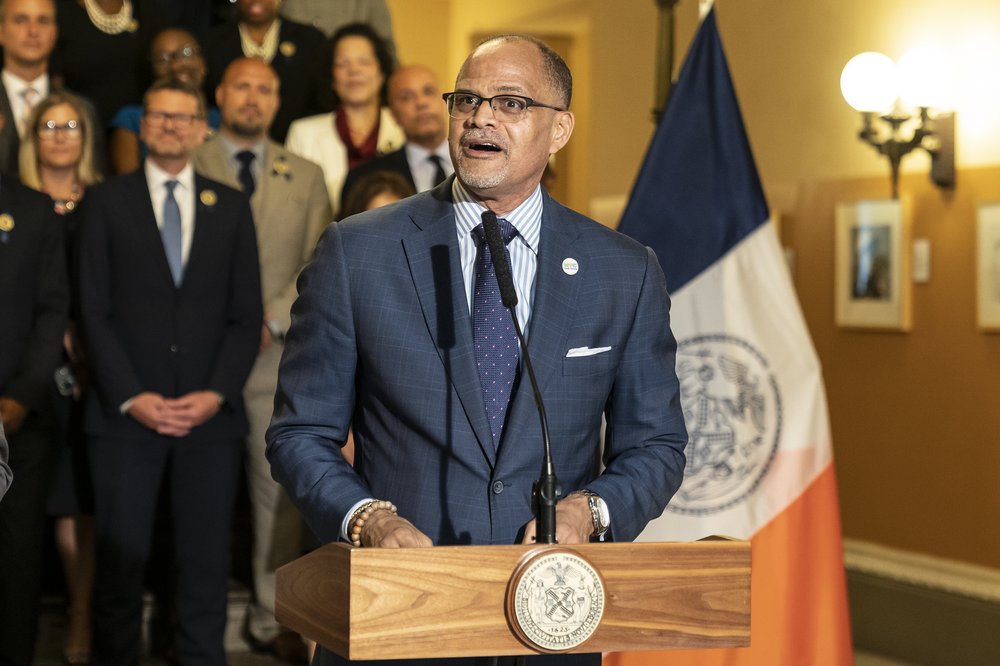NYC schools initiatives face $700M gap as federal COVID funding dries up: advocates
Jan. 19, 2023, 5:01 a.m.
The city Department of Education received $7 billion in federal funding through pandemic stimulus packages in 2020 and 2021, but that money is expected to dry up by October 2024.

Schools Chancellor David Banks may need to slash major education initiatives as federal stimulus funding dries up.
Key education initiatives at city public schools could be cut next year as federal COVID-19 stimulus funding dries up, according to a new report Thursday.
The analysis by Advocates for Children of New York found that high-priority initiatives – such as support for students with dyslexia and additional bilingual programs as asylum-seeking students enroll in city schools – are funded with the federal money set to run out in October 2024.
The group estimated that it will take $700 million per year to sustain all the education initiatives.
“We can’t turn back on the progress made,” said Kim Sweet, executive director of nonprofit Advocates for Children of New York. “New York City students are counting on policymakers at the city, state and federal levels to work together to ensure our schools have the resources they need to avoid taking a massive step backwards in the instruction and services they provide.”
Other initiatives that use the federal funding include expanded summer programming, community schools that offer health care and adult education, and the hiring of hundreds more social workers, the report stated.
Federal stimulus funding during the pandemic in 2020 and 2021 resulted in a $7 billion windfall for the Department of Education.
The department has been criticized at times for spending the funds too slowly, but according to the report from Advocates for Children, the money is expected to “run dry” in October 2024.
Mayor Eric Adams has underscored the need for “fiscal discipline” in the face of an uncertain economy and the dwindling federal aid.
“In order to keep moving forward while preserving the programs and services we value, we must be careful and make the best use of our resources,” Adams said in his budget address last week.
His preliminary budget for the fiscal year that begins in July proposes $30.7 billion for the education department, which is less than the $31.2 billion the agency expects to spend in the current fiscal year. Adams has said the budget reduction is the result of less stimulus money and the elimination of vacant positions.
The Adams administration has already said it plans to scale back ambitions for 3-K, maintaining the current number of slots rather than expanding them. Schools Chancellor David Banks argues that former Mayor Bill de Blasio’s administration did not match seats with needs, leaving many unused. Many members of the City Council oppose the decision not to grow the program as planned.
The analysis paints an even more dire picture for 3-K. Advocates for Children found the city will still need $100 million more a year just to maintain the 3-K program at its current level.
Adams’ signature education policy providing more resources for students with dyslexia also relies on federal funding, the report states. Universal screening of students for dyslexia, training for educators on how to identify reading difficulties, and other programming is funded by $7.4 million in federal money, according to the analysis.
“Stimulus funding expires next year, and we are working closely with City Hall and our agency partners to find ways to sustain and build on the work we have done to lift up our students and schools,” said education department spokesperson Lyle Jenna. “We appreciate the Advocates for Children’s focus on these important initiatives, and we will continue to work closely with all stakeholders to invest in and strengthen our schools.”